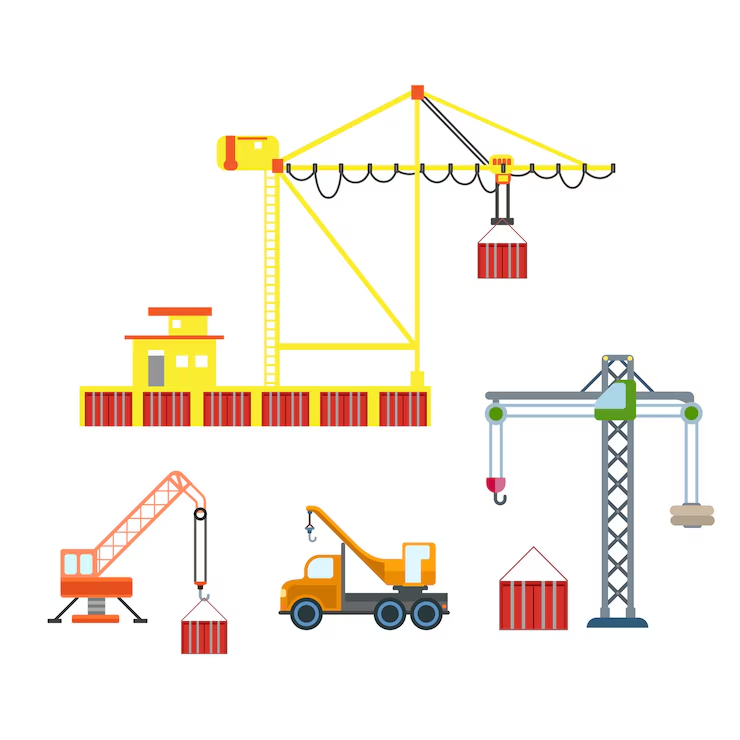Cranes are essential workhorses on construction sites, lifting massive loads and facilitating the rapid progress of complex projects. But when a crane fails, the results can be devastating—and costly. In the aftermath of an accident, the focus often turns to maintenance records. These logs serve as a trail of evidence, documenting the crane’s upkeep and the due diligence of its operators. When handled correctly, maintenance records can be a powerful tool for legal defense and a testament to a company’s commitment to safety.
1. Safety First: Preventing Accidents Through Routine Maintenance
The importance of regular maintenance can’t be overstated. Cranes are complex machines with thousands of moving parts, all of which need regular attention to prevent wear and failure. Even a small oversight—like a missed bolt or a delayed lubrication—can lead to major issues. Comprehensive maintenance logs provide a clear record that inspections and repairs are being carried out on schedule, reducing the risk of preventable malfunctions.
Beyond reducing accident risk, accurate records demonstrate that a company prioritizes safety. This documentation not only helps keep workers safe but also reinforces the trust of clients and regulators, underscoring that safety protocols are consistently met.
2. Maintenance Logs as Essential Legal Evidence
In the unfortunate event of a crane accident, the legal landscape can become as intricate as the crane’s machinery itself. Maintenance records are invaluable in such cases, as they serve as key evidence to clarify what went wrong. These logs can reveal patterns, indicate areas of concern, and show that due diligence was maintained in the machine’s upkeep.
Imagine a scenario where a crane’s cable snaps mid-lift. If maintenance logs confirm that the cable had been inspected and serviced according to manufacturer recommendations, the company operating the crane can show they took all reasonable precautions. On the other hand, gaps or inconsistencies in these logs can give opposing parties grounds to question the company’s commitment to safety. In this way, maintenance records can either reinforce or undermine the defense’s case, making them an essential component of any legal strategy.
3. The Role of a Crane Expert Witness in Analyzing Maintenance Records
When it comes to interpreting maintenance records in legal disputes, a crane expert witness plays a pivotal role. These experts have the technical knowledge needed to analyze logs and determine whether maintenance was performed according to industry standards. They can testify to the adequacy of the recorded upkeep, assess any failures, and explain complex technical details to the court.
A crane expert witness doesn’t just review maintenance logs; they provide a detailed analysis that addresses potential oversights, compliance with safety standards, and any potential contributory factors to the accident. This analysis can make or break a legal case, lending credibility to claims of proper maintenance or highlighting deficiencies if safety protocols were not met.
- Protecting Against Liability with Detailed Recordkeeping
Clear, consistent, and detailed maintenance logs are a company’s first line of defense in both safety and liability. These records should include dates, specific maintenance activities, any parts replaced or repaired, and signatures from certified technicians. Adopting a rigorous recordkeeping process not only helps protect against liability but also serves as a reliable benchmark for ongoing safety standards.
For companies that operate cranes, investing in detailed maintenance records isn’t just about legal protection—it’s a proactive step toward building a culture of safety. It assures employees, clients, and stakeholders that machinery is properly cared for and that everyone’s well-being is a priority. And in the event of an accident, these records offer a way to demonstrate responsibility and compliance, potentially minimizing legal repercussions.
In sum, maintaining detailed records isn’t just a best practice; it’s essential for both preventing accidents and establishing a strong defense in legal disputes. When the stakes are high, these logs—and the expert insights they provide—can make all the difference.





